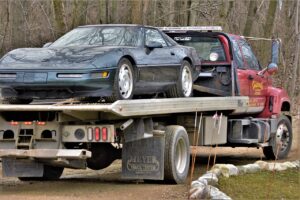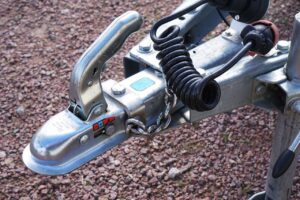A well-functioning electrical system is essential for the safety and performance of your trailer. Whether you’re towing a utility trailer, a camper, or a boat trailer, understanding how the electrical system works can help you maintain it properly and troubleshoot issues effectively. This blog post provides an overview of the key components of a trailer’s electrical system, how they work together, and tips for maintaining and troubleshooting the system.
Key Components of a Trailer Electrical System
1. Wiring Harness The wiring harness is the backbone of the trailer’s electrical system. It connects the various electrical components of the trailer to the towing vehicle, ensuring that signals and power are transmitted efficiently.
- Function: Transmits power and signals from the towing vehicle to the trailer’s lights, brakes, and other electrical components.
- Types: Common types include 4-pin, 5-pin, 6-pin, and 7-pin connectors, each providing different levels of functionality and power.
2. Connectors and Plugs Connectors and plugs are critical for linking the trailer’s wiring harness to the towing vehicle’s electrical system. They ensure a secure and reliable connection for transmitting electrical signals.
- Types: Flat connectors (4-pin, 5-pin), round connectors (6-pin, 7-pin), and blade-style connectors.
- Function: Facilitate the transfer of power and signals between the vehicle and trailer.
3. Lights The lights on a trailer are essential for safety, signaling, and compliance with road regulations. They include brake lights, turn signals, tail lights, and sometimes additional marker lights.
- Types: Incandescent bulbs and LED lights.
- Function: Provide visibility and signal the trailer’s movements to other drivers.
4. Braking System Some trailers are equipped with electric brakes, which require a connection to the towing vehicle’s braking system to function properly.
- Components: Electric brake controller in the towing vehicle, brake magnets in the trailer, and associated wiring.
- Function: Enhance braking power and control, particularly important for heavier trailers.
5. Auxiliary Power Auxiliary power systems provide power to additional components such as interior lights, refrigeration units, and winches.
- Function: Supply power to non-essential but useful features of the trailer.
- Components: Auxiliary batteries, power converters, and associated wiring.
How the Electrical System Works
The electrical system of a trailer works by transmitting power and signals from the towing vehicle to the trailer. Here’s a simplified breakdown:
- Connection: The trailer wiring harness is connected to the towing vehicle’s electrical system via a connector and plug.
- Power Transmission: Power from the vehicle’s battery is transmitted through the wiring harness to the trailer’s electrical components.
- Signal Transmission: Signals for turn indicators, brake lights, and tail lights are sent from the vehicle to the trailer.
- Braking Control: If the trailer has electric brakes, the brake controller in the vehicle sends signals to the trailer’s braking system to engage the brakes.
- Auxiliary Power: Additional power requirements are met through auxiliary power connections, ensuring that all trailer systems operate effectively.
Maintenance Tips
1. Regular Inspections
- Visual Checks: Inspect the wiring harness, connectors, and lights for signs of wear, damage, or corrosion. Look for frayed wires, cracked insulation, and rusted connectors.
- Functional Testing: Periodically test all electrical components, including lights and brakes, to ensure they are functioning correctly.
2. Cleaning and Protection
- Clean Connectors: Use electrical contact cleaner to remove dirt and corrosion from connectors. Apply dielectric grease to protect against moisture and corrosion.
- Protect Wiring: Use split loom tubing or other protective coverings to shield the wiring from physical damage and environmental exposure.
3. Proper Storage
- Dry Storage: Store your trailer in a dry, covered area when not in use to protect the electrical system from moisture and other environmental factors.
- Cover Connectors: Use covers or caps to protect connectors from dirt, debris, and moisture when the trailer is not connected to the towing vehicle.
4. Use Quality Components
- High-Quality Materials: Invest in high-quality wiring harnesses, connectors, and lights to ensure durability and reliability.
- Regular Replacements: Replace worn or damaged components promptly to maintain the integrity of the electrical system.
Troubleshooting Common Issues
1. Lights Not Working
- Check Fuses: Inspect the fuses in the towing vehicle’s fuse box for any that are blown and replace them as needed.
- Inspect Connectors: Ensure connectors are clean, dry, and securely connected. Clean and re-secure if necessary.
- Test Wiring: Use a multimeter to check for continuity and voltage in the wiring harness. Repair or replace damaged sections.
2. Intermittent Lighting
- Secure Connections: Tighten any loose connections and ensure all wires are properly secured and insulated.
- Inspect Ground Wires: Ensure that ground wires are securely connected to clean, bare metal surfaces.
3. Brakes Not Engaging
- Check Brake Controller: Verify that the brake controller in the towing vehicle is functioning correctly and is properly calibrated.
- Inspect Brake Wiring: Check the wiring to the brake magnets for any signs of damage or disconnection. Repair or replace as needed.
4. Auxiliary Power Issues
- Test Battery: Ensure the auxiliary battery is fully charged and in good condition. Replace if necessary.
- Inspect Power Connections: Check all power connections and wiring for continuity and secure connections.
Conclusion
Understanding the electrical system of your trailer is essential for maintaining its safety, reliability, and performance. By familiarizing yourself with the key components, how they work together, and following regular maintenance and troubleshooting tips, you can ensure that your trailer’s electrical system remains in top condition. For high-quality wiring harnesses and electrical components, visit WiringLabs and explore our range of reliable and durable products designed to meet your trailer’s specific needs.




